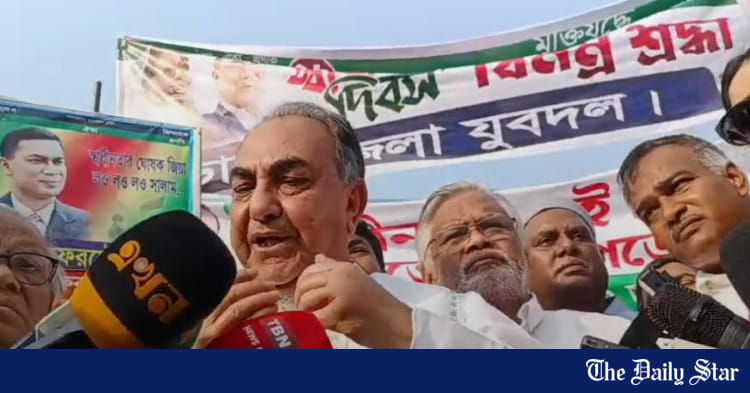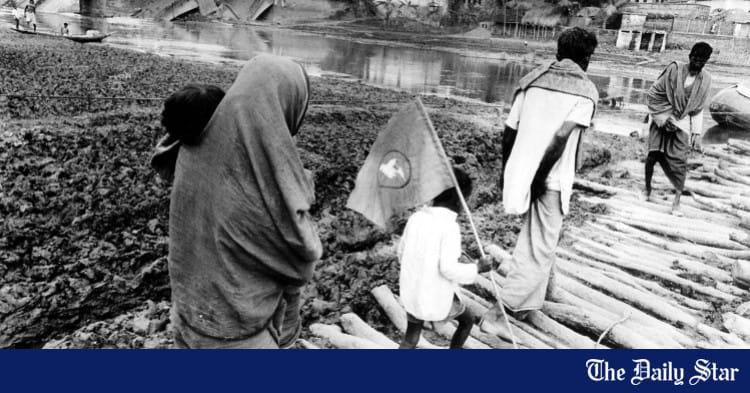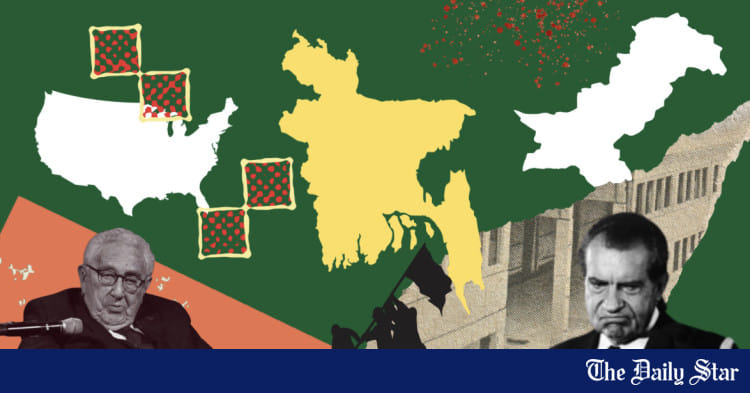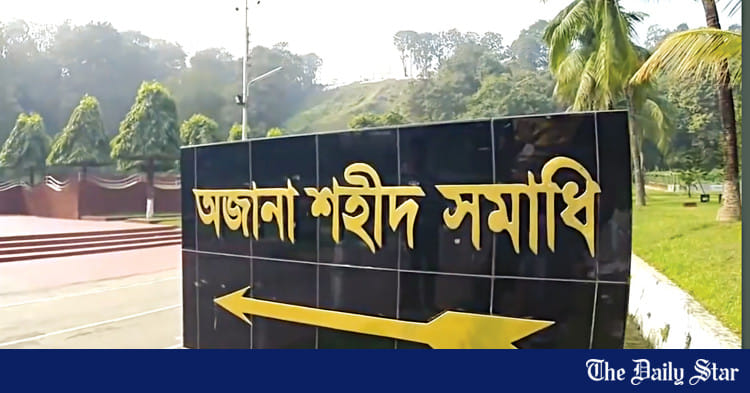Saif
Senior Member
- Joined
- Jan 24, 2024
- Messages
- 15,397
- Reaction score
- 7,874
- Nation

- Residence

- Axis Group


We had lost the taste of true freedom: Mirza Abbas
BNP Standing Committee Member Mirza Abbas today said that even after 54 years of independence, the nation had lost the essence of true freedom but regained it after August 5
We had lost the taste of true freedom: Mirza Abbas

BNP Standing Committee Member Mirza Abbas today said that even after 54 years of independence, the nation had lost the essence of true freedom but regained it after August 5.
He made these remarks on the morning of Independence Day after paying tribute to the martyrs at the National Memorial.
"First of all, I remember the proclaimer of independence, martyr President Ziaur Rahman, then fought from within the country and liberated it. Even after 54 years of independence, we lost the taste of true freedom in the middle. We got it again after the 5th," he said.
He honoured the martyrs of 1971 who sacrificed their lives for freedom and expressed condolences to their surviving family members. On behalf of BNP leaders Khaleda Zia and Tarique Rahman, he extended greetings to the nation.
Reflecting on recent events, Mirza Abbas said, "We have just got a new taste of democracy by driving away a new form of oppression through the student movement in July and August."
He criticised those referring to the events of 2024 as the "second independence," asserting that such terminology diminishes the significance of the 1971 Liberation War. "Those who say this want to shorten today's Independence Day; they had no role in the independence of 1971. Therefore, they want to diminish this day," he added.
"I want prayers for national leader Khaleda Zia and will seek prayers from Allah so that we can maintain this independence, so that our next generation can uphold this independence," he said.
Addressing political dynamics, Mirza Abbas stated that while different parties have their ideological stances, this does not equate to disunity.
He emphasised that if a time comes when greater national unity is required to protect independence and sovereignty, the people of Bangladesh will unite. "Now, we may be talking differently for party ideological interests, but when the need arises, the people of Bangladesh will be united," he said.
Regarding the assurance from the chief advisor about elections in December, he expressed trust in that commitment. "Every political party in Bangladesh is an opponent. I do not want to believe that elections will not be held," he concluded.
BNP Standing Committee Member Mirza Abbas today said that even after 54 years of independence, the nation had lost the essence of true freedom but regained it after August 5.
He made these remarks on the morning of Independence Day after paying tribute to the martyrs at the National Memorial.
"First of all, I remember the proclaimer of independence, martyr President Ziaur Rahman, then fought from within the country and liberated it. Even after 54 years of independence, we lost the taste of true freedom in the middle. We got it again after the 5th," he said.
He honoured the martyrs of 1971 who sacrificed their lives for freedom and expressed condolences to their surviving family members. On behalf of BNP leaders Khaleda Zia and Tarique Rahman, he extended greetings to the nation.
Reflecting on recent events, Mirza Abbas said, "We have just got a new taste of democracy by driving away a new form of oppression through the student movement in July and August."
He criticised those referring to the events of 2024 as the "second independence," asserting that such terminology diminishes the significance of the 1971 Liberation War. "Those who say this want to shorten today's Independence Day; they had no role in the independence of 1971. Therefore, they want to diminish this day," he added.
"I want prayers for national leader Khaleda Zia and will seek prayers from Allah so that we can maintain this independence, so that our next generation can uphold this independence," he said.
Addressing political dynamics, Mirza Abbas stated that while different parties have their ideological stances, this does not equate to disunity.
He emphasised that if a time comes when greater national unity is required to protect independence and sovereignty, the people of Bangladesh will unite. "Now, we may be talking differently for party ideological interests, but when the need arises, the people of Bangladesh will be united," he said.
Regarding the assurance from the chief advisor about elections in December, he expressed trust in that commitment. "Every political party in Bangladesh is an opponent. I do not want to believe that elections will not be held," he concluded.




